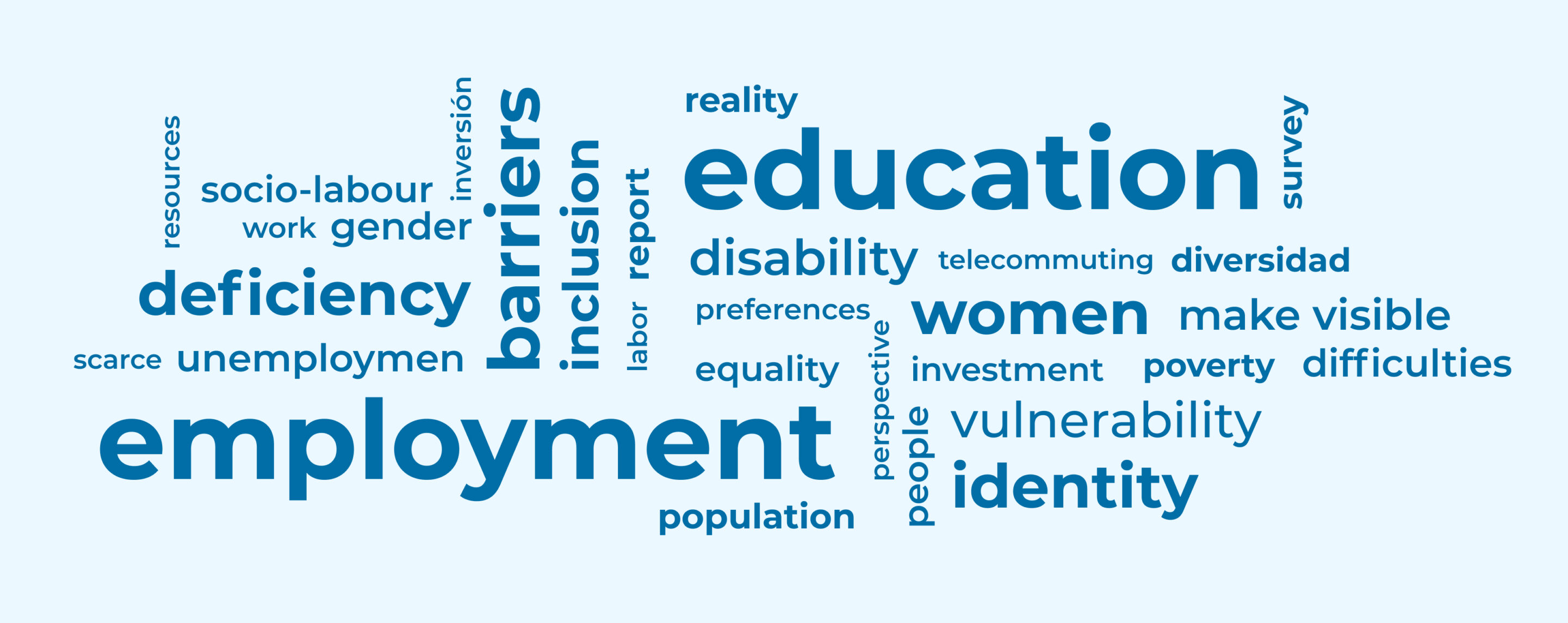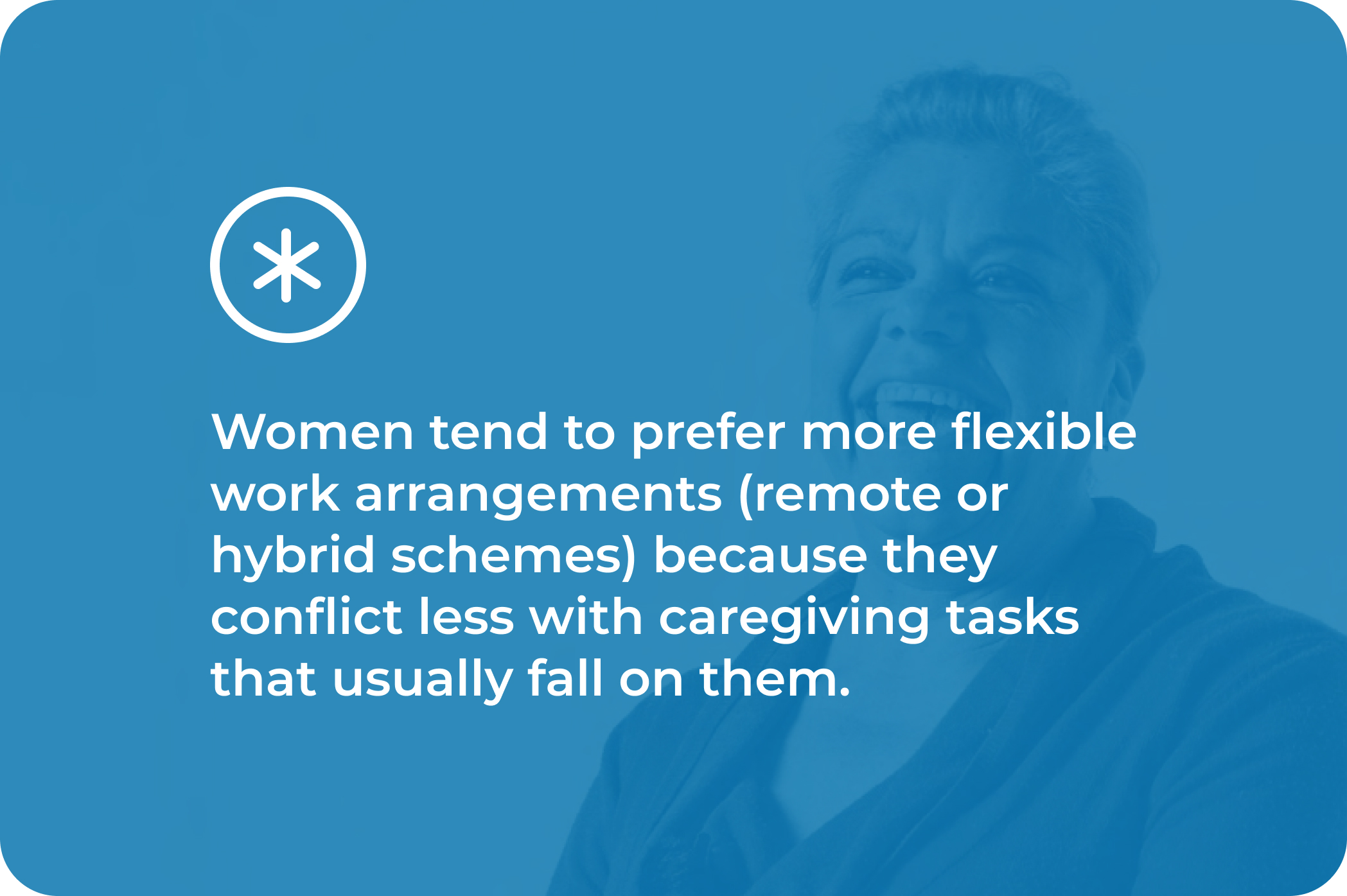
Incluyeme.com presents the results of the first edition of ELADis. We seek to make the population with disabilities visible in the region and understand their reality in order to carry out actions that improve their socio-labor inclusion.
Key findings
%
of people with disabilities were UNEMPLOYED at the time of the survey
%
identified BARRIERS to pursuing higher education
%
identified DIFFICULTIES in finding employment
%
expressed interest in CONTINUING EDUCATION
%
identified DISABILITY as the most mentioned BARRIER, followed by lack of experience, age, level of English, and lack of education
%
1.6% consider themselves BILINGUAL (Spanish/English)


The findings obtained are extremely valuable in order to gain a deeper understanding of the obstacles, challenges, and opportunities that people with disabilities face in the context of the labor and educational reality.

The findings obtained are extremely valuable in order to gain a deeper understanding of the obstacles, challenges, and opportunities that people with disabilities face in the context of the labor and educational reality.
Most used words

Women with disabilities
%
is the unemployment rate for women with disabilities, while it is 40% for men with disabilities.
%
el desempleo en mujeres con discapacidad es un 17% más alto que en varones con discapacidad

ELADis aims to understand the reality of women with disabilities in Latin America in order to carry out actions that promote their socio-labor inclusion in equitable environments. Women with disabilities are not exempt from gender biases, gaps, and stereotypes. Responses regarding working hours also showed differences between women and men, with men reporting dedicating more hours to paid work than women.
The trend is clear and coincides with general trends where men spend more hours working and have more years of experience, as they usually have fewer interruptions in their work activity compared to women.

Las mujeres tienden a preferir
modalidades laborales más flexibles (teletrabajo o esquema híbrido) porque se contraponen menos con las labores de cuidado que suelen recaer en ellas.
About ELADis
The population with disabilities is highly invisible and has very few updated data at the regional level. At Incluyeme.com, we want to continue generating actions that make this population visible and have a positive impact on society. That is why we created the first Latin American Survey on Disability (ELADis) with the aim of providing concrete data on the population with disabilities in Latin America.
ELADis presents the results obtained from the 4,007 responses received from people with disabilities to the survey designed and conducted by Incluyeme.com between March 30 and May 10, 2022.


It is important to highlight that the survey was tested by people with different types of disabilities and from different countries in Latin America to validate its accessibility and the relevance of its language.
ELADis was conceived and its results were analyzed from a gender and intersectional perspective.

It is important to highlight that the survey was tested by people with different types of disabilities and from different countries in Latin America to validate its accessibility and the relevance of its language.
ELADis was conceived and its results were analyzed from a gender and intersectional perspective.
Fill out the form to receive the full report by email
The findings obtained in ELADis are extremely valuable to better understand the obstacles, challenges, and opportunities faced by people with disabilities in the labor and educational reality.
With the support of




